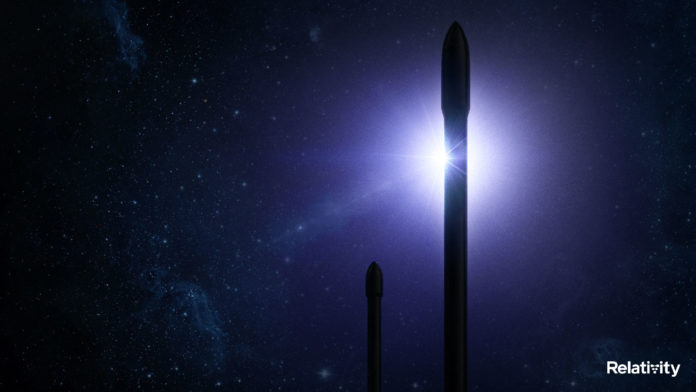SpaceX’s Falcon 9 appears to have no rivals. It grabs all the headlines when it comes to space launches, thanks to its record after record for reuse. However, Elon Musk‘s company is not alone in seeking to place objects into orbit using reusable rockets. One of the most promising is Relativity Space, and they have announced the arrival of their rival for Falcon 9.
The 3D-printed rocket aerospace company is developing a fully reusable rocket designed to match the power and capability of SpaceX’s workhorse Falcon 9 rockets. The new reusable rocket, called Terran R, is a much larger orbital rocket than its predecessor – Terran 1, a small launch-capable vehicle slated to lift off later this year.
The new rocket will be able to lift nearly 20 times as much payload as Terran 1, with Relativity Space targeting a rocket capable of launching more than 20,000 kilograms to low Earth orbit. It would be positioned directly in the same spectrum as SpaceX’s Falcon 9, capable of carrying up to 22,800 kilograms. Ellis says that a larger launch vehicle makes sense given the current strong customer demand for Terran 1, which has a max payload capacity of 1,250 kg.
Relativity Space will build Terran R with more than 90% of the parts gathered via additive manufacturing, utilizing the world’s largest 3D printers. The Terran R will also be entirely reusable – encompassing both the first- and second-stage rockets, unlike SpaceX’s Falcon 9.
Tim Ellis, СЕО of the startup company, considers additive printing to be the inevitable technology that is absolutely necessary for the creation of an industrial base for humanity on Mars and believes that with SpaceX, a new era of astronautics will begin. The young company intends to automate and significantly reduce the cost of producing space rockets with the help of specialized 3D printers.
“It’s the same architecture, the same propellant, the same factory, the same 3D printers, the same avionics, and the same team that developed Terran 1,” Ellis said in the CNBC report. “I’ve always been a huge fan of reusability. No matter how you look at it – even with 3D printing, and dropping the cost, and increasing the automation of a launch vehicle – making it reusable has got to be part of that future.“
Relativity plans to launch Terran R from Cape Canaveral in Florida, where the company previously secured a launch site for Terran 1.
